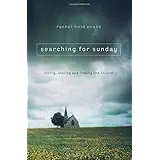 Denny Burk
Denny Burk
What is the Meaning of Sex?
Wheaton, IL: Crossway, 2013.
Available at Amazon.com
By Kara Martin
Denny Burk is correct when he says that we live in a world confused about sex. The link between the biblical understanding of sex and relationships that defined the mores of society has almost completely disintegrated in the past 40 years.
In his book Sex and iWorld, Dale Kuehne points out that society now supports any sexual activity or expression as long as it does not transgress three taboos:
One may not criticise someone’s life choices or behaviour.
One may not behave in a manner that coerces or causes harm to others.
One may not engage in a sexual relationship with someone without his or her consent.
These taboos clarify why existing Christian responses to issues of sexual morality issues garner either criticism or mockery. Christians do not have the right to criticise the choices of others, we are seen as coercive, and we want to apply a limit on sexual freedom beyond consent.
So Burk is seeking to provide clarity and give a biblical perspective on sexual issues. In particular he wants to define the evangelical position, providing a correction to some recent writings including:
Brian McLaren’s views on homosexuality.
Mark and Kathy Driscoll’s views on acceptable sexual behaviour for Christians.
Ben Witherington’s writings that seem to make a distinction between Jesus and Paul’s perspectives on sexual ethics.
It is very useful to have a comprehensive examination of issues of sex including body, marriage, conjugal unions, family planning, gender, sexuality and singleness. Burk admits from the outset that the book is a primer, it is a biblical rather than a philosophical perspective, and that we are all sinners.
His starting point is the infallibility of the Bible, and a conservative evangelical approach to interpretation. The latter means that he is willing to dialogue with Catholic perspectives when they support his conclusions, for example on issues of birth control, abortion and gender distinctions.
In response to the question of the title of the book: what is the meaning of sex? His answer is “to glorify God” by seeing sex as the means of consummating marriage, procreating, expressing love, and experiencing pleasure (in that order). It is on this basis that he moves perhaps more conservatively than other evangelical authors.
He concludes that there should be prohibitions for Christians on masturbation, homosexual behaviour, divorce (except in the specific ways allowed by Jesus and Paul including infidelity, or if the non-believing partner no longer wants to be married to the believer), remarriage, using the Pill, women usurping male authority in the church, and the concept of intersex or a gender spectrum.
My biggest concern with this book is that, aside from some suggested responses from John Piper to homosexuality, there is really no pastoral commentary provided, even though many Christian readers would be challenged, particularly those who had not before confronted such absolute prohibitions on biblical grounds for widespread activity such as divorce and remarriage, masturbation and use of the Pill.
For this reason I would strongly recommend that the book be read in conjunction with Judith and Jack Balswick’s Authentic Human Sexuality: An Integrated Christian Approach, which provides a researched and nuanced psychological and sociological perspective for responding to pastoral issues.
For example, to the problem that initiated Burk’s search for answers: a question from a youth minister about how to deal with a girl in his youth group who was born intersex, had gone through corrective surgery as an infant, but now wanted to become a boy… Burk’s response in the “gender distinctions” chapter is all about what the parents should have done: not rush corrective surgery, identify the biological sex through chromosomal identification and raise the child in line with that, then have the necessary surgery in agreement with the child at an appropriate age … He actually does not address the original problem, which is a pastoral question.
Another concern I have is also related to the brevity of the book. In the area of gender distinctions Burk lists the wife’s role as submitting to the husband, and the husband’s role to love his wife by leading, protecting and providing for her. This does not give many clues for wives, and there is no pastoral advice about what this looks like in practice. Similarly, within the church, he says the “primary responsibility for teaching and for leading falls to men”. While this was predictable, the choice of words could lead to ambiguity. Does this mean that gifted women could teach, as long as a male had primary responsibility? I suspect that is not Burk’s position. In this section he also defines egalitarianism as evangelical feminism, which “denies there are any gender-based role distinctions between men and women”. This is an extremely broad characterisation of egalitarian viewpoints that makes it easy to dismiss any counter to his perspective.
The lack of accuracy of his wording in some sections, and the lack of willingness to accept any other interpretation, opens up the danger of misuse of this book to condemn or cause guilt.
Ironically, I found the most interesting chapter the one in which Burk points out the prevalence of a “Jesus versus Paul” hermeneutic emerging in evangelical settings. This moves far beyond the issues of sex. He particularly condemns The “Red Letter” Christians, including Tony Campolo, who give priority to the words of Jesus in defining ethical norms. In this section he also takes on Barack Obama, AN Wilson, Ben Witherington and Richard Burridge, for giving preference to some Scripture over other Scripture by elevating Jesus over Paul.
In making his arguments against these perspectives he makes some unconvincing points, for example, that our impressions of Jesus are mediated through the authors: Matthew, Mark, Luke and John such that the relevant hermeneutical position is not what Jesus did or said, but “why the author told us what Jesus did or said”.
He also focuses on apostolic authority, that is, to know Jesus, you have to know the apostles. He claims that Jesus intends that the Spirit will teach, illuminate and guide exclusively the apostles, (John 14-16) rather than modern Christians. He says we should see the words of Paul and the other apostles as the words of Christ. (I am no theologian, but I do point out that there were points when the apostles disagreed.)
More convincing is his argument that we need to see all Scripture as inspired, and to be considered carefully.
Burk concludes with some good points that correct the myths that Christians need to be sure they do not absorb from society:
Gender is something you are created as, not something you learn.
Sex is for God, not primarily for pleasure.
Marriage is a universal construct, created by God before the fall, not a cultural construct.
To this I would add:
Your identity is discovered completely in relationship with God, not defined by the expression of your sexuality.
It is disturbing that Christians are often not distinct from non-believers, particularly in numbers indulging in pre-marital sex and getting divorced, but increasingly there are demarcation lines being drawn, and this book is a helpful reminder of how counter-cultural are biblical norms. However, such messages need to be communicated with great pastoral sensitivity, alongside resourcing support for those who struggle to live up to the sexual ethic presented.
 KARA MARTIN is the Associate Dean of the Marketplace Institute (www.marketplaceinstitute.org), Ridley Melbourne, has been a lecturer with Wesley Institute (www.wi.edu.au) and is an avid reader and book group attendee. Kara does book reviews for Open House (www.theopenhouse.net.au) and Eternity Magazine (http://www.biblesociety.org.au/eternitynews).
KARA MARTIN is the Associate Dean of the Marketplace Institute (www.marketplaceinstitute.org), Ridley Melbourne, has been a lecturer with Wesley Institute (www.wi.edu.au) and is an avid reader and book group attendee. Kara does book reviews for Open House (www.theopenhouse.net.au) and Eternity Magazine (http://www.biblesociety.org.au/eternitynews).
 Morling College (a Baptist College in Australia) last year hosted a great event called The Gender Conversation with a variety of speakers and presenters from all over Australia. I gave a talk on the NT household codes, other people talked about egalitarianism, gender dysphoria, gender and ministry, and singleness, controversial stuff, but lots of perspectives represented. The videos for that conference are now available for renting or purchasing.
Morling College (a Baptist College in Australia) last year hosted a great event called The Gender Conversation with a variety of speakers and presenters from all over Australia. I gave a talk on the NT household codes, other people talked about egalitarianism, gender dysphoria, gender and ministry, and singleness, controversial stuff, but lots of perspectives represented. The videos for that conference are now available for renting or purchasing.






 KARA MARTIN is the Associate Dean of the Marketplace Institute (
KARA MARTIN is the Associate Dean of the Marketplace Institute (





